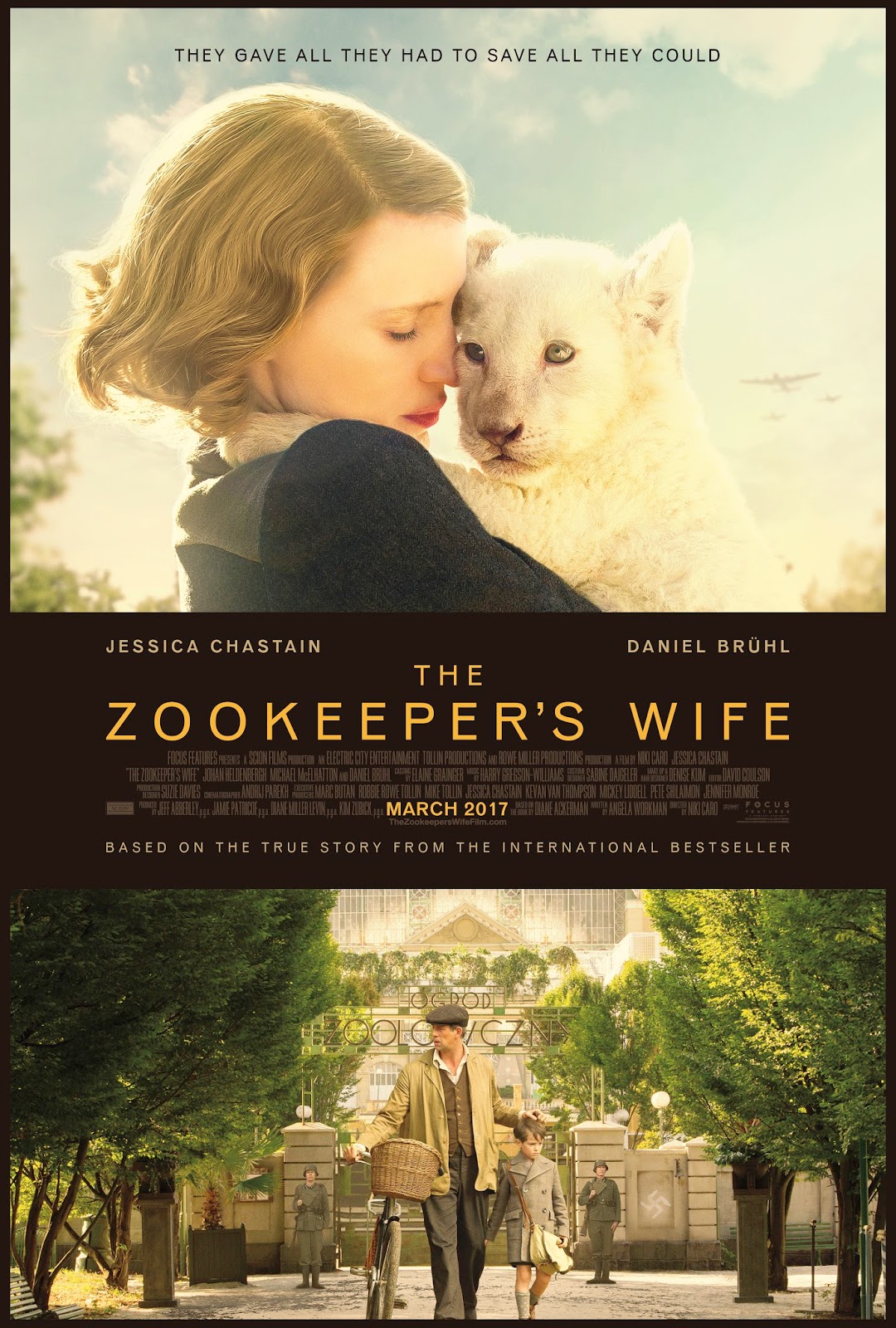So many stories of unimaginable courage have emerged from the time of World War II that you might begin to think there aren’t any left to be told. From To Hell and Back to The Imitation Game to Hacksaw Ridge, movies about heroes from almost every facet of the war have eventually made it to the big screen. Though The Zookeeper’s Wife doesn’t boast the scope of The Longest Day or the raw, visceral power of Saving Private Ryan, it’s inspiring nonetheless—a reminder that even if something didn’t happen on the battlefield (or even get recorded in history books), it doesn’t mean it’s not worth celebrating.
Based on the engrossing book by Diane Ackerman, The Zookeeper’s Wife stars Jessica Chastain as Antonina Zabinski, a Polish woman who, alongside her husband Jan (Johan Heldenbergh), started running the Warsaw Zoo in the late 1920s. The film starts in the summer of 1939 with Antonina on her morning bike ride through the idyllic grounds, where camels, monkeys, elephants, and tigers all frolic. Within a few weeks, however, the serenity is shattered as the Nazis invade Poland, and a combination of bombs and soldiers reduce the zoo (and the city as a whole) to rubble.
As all of the city’s Jewish population is rounded up and imprisoned in the Ghetto, the Zabinskis decide to use the defunct zoo to their advantage, realizing it could be the perfect hiding place for Jews—serving as a halfway-house of sorts for refugees on the path to freedom.
With the permission of their pre-war acquaintance Lutz Heck (Daniel Brühl), who was director of the Berlin Zoo and Hitler’s chief zoologist, the Zabinskis convert the space into a pig farm, ostensibly to provide food for the German soldiers but in reality to allow the refugees to hide in plain sight. The longer the subterfuge goes on, the higher the stakes; Heck’s long-held infatuation with Antonina grows as all the while more and more Jewish refugees are welcomed to the zoo.
While The Zookeeper’s Wife never leaves the environs of Warsaw, just enough of the war’s larger atrocities are spoken of or hinted at that the audience gets ample perspective. Particularly harrowing is a scene following the liquidation of the Ghetto as all the remaining Jews, including the famous Dr. Janusz Korczak (who is no doubt destined to be celebrated with his own feature film someday), are herded onto a train. We know where it’s headed, and even though we don’t see its fate, we know enough for it to create a haunting, lasting impression.
Director Niki Caro (Whale Rider), working from a script by Angela Workman, brilliantly brings the Zabinskis’ story to life, using nuance and understatement to powerful effect. Chastain gives a riveting, expertly restrained performance as Antonina, and though Heck is not nearly as well drawn as a character, Brühl still brings enough menace to overcome it. Also worth noting is Shira Haas, whose performance as a brutalized teenage refugee is perhaps the most memorable of the bunch.
Through The Zookeeper’s Wife never quite rises to the level of, say, Schindler’s List (but honestly, what has?), it’s no less important a story, and it’s told very well. The Zabinskis may be lesser-known heroes, but they’ve finally been given the recognition they deserve.
Rating
4/5 stars
